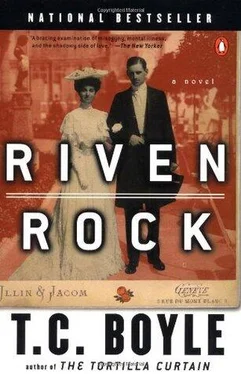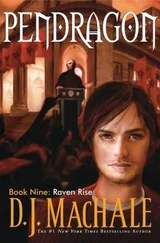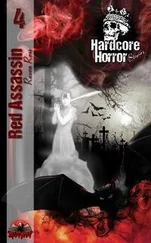T. Boyle - Riven Rock
Здесь есть возможность читать онлайн «T. Boyle - Riven Rock» весь текст электронной книги совершенно бесплатно (целиком полную версию без сокращений). В некоторых случаях можно слушать аудио, скачать через торрент в формате fb2 и присутствует краткое содержание. Год выпуска: 1999, Издательство: Penguin Books, Жанр: Современная проза, на английском языке. Описание произведения, (предисловие) а так же отзывы посетителей доступны на портале библиотеки ЛибКат.
- Название:Riven Rock
- Автор:
- Издательство:Penguin Books
- Жанр:
- Год:1999
- ISBN:нет данных
- Рейтинг книги:5 / 5. Голосов: 1
-
Избранное:Добавить в избранное
- Отзывы:
-
Ваша оценка:
- 100
- 1
- 2
- 3
- 4
- 5
Riven Rock: краткое содержание, описание и аннотация
Предлагаем к чтению аннотацию, описание, краткое содержание или предисловие (зависит от того, что написал сам автор книги «Riven Rock»). Если вы не нашли необходимую информацию о книге — напишите в комментариях, мы постараемся отыскать её.
Riven Rock — читать онлайн бесплатно полную книгу (весь текст) целиком
Ниже представлен текст книги, разбитый по страницам. Система сохранения места последней прочитанной страницы, позволяет с удобством читать онлайн бесплатно книгу «Riven Rock», без необходимости каждый раз заново искать на чём Вы остановились. Поставьте закладку, и сможете в любой момент перейти на страницу, на которой закончили чтение.
Интервал:
Закладка:
Stanley was two at the time, Harold five. Of the trip, he recalled a sensation of intense, blinding greenness, a sea of green beyond the moving windows, vast and oceanic, a world bigger than comprehension would allow. And of the house in Waverley he remembered nothing, except that the sun was there to illuminate this new, expansive and undifferentiated world of green, and that the deep grass beyond the edge of the yard was a place where snakes lived. His mama told him about them, lean hard whiplike things with the false glitter of a present wrapped for Christmas, little hidden gifts of poison and death that he must never touch. That was what he remembered of that trip to Massachusetts in the summer of ‘77, that and his big sister. Who was sick.
Mary Virginia improved at McLean. There was no miraculous cure, certainly not the sort of cure Nettie was expecting, demanding, hounding the doctors for day and night, but at least the imaginary conversations ceased and there were no more bloody stigmata on the walls. They all went home together, back to the brownstone mansion on Rush Street, with the ballroom that could accommodate two hundred and the steam-heated stable for the horses and the goat and cow (the Reaper King liked his milk fresh) and the pony Anita would get for her sixteenth birthday five years later. Mary Virginia grew older and prettier, but she had to withdraw from the Misses Kirklands’ Academy before graduation because Miss Nevelson, her Latin teacher, had a detachable head and kept putting it on backward and Mary Virginia couldn’t abide that — it was just the sort of thing she’d always hated — and so Nettie had arranged for a private tutor at home. There was a year of tenuous peace, and then, at eighteen, Mary Virginia broke down again, victim of amorphous fears, and she had to be hospitalized — this time for six months.
A relatively smooth period followed, a time during which she haunted the rooms of the house at all hours of the night like some lost and wandering soul — but placid, thankfully — and then gradually, as in the unfolding of some natural event, she grew more excitable, and in her excitement, she turned to the piano. Suddenly she was up at dawn, hammering away at the keys with a fury that would have paralyzed a Chopin or even a Liszt, thundering and banging till her fingers were blunted and there was blood on the keys, using her elbows, her chin, even her teeth, and she went on for hours, sometimes seven or eight hours at a stretch, and nothing could distract her or dissuade her. Nettie wouldn’t have objected if only she’d play nicely, play properly, play some discernible tune. But no, her playing was an atonal orgy, senseless, barbaric, animalistic — it was disturbing, that’s what it was, and she was disturbed, her daughter was disturbed, and Nettie meant to put an end to it.
One night, as Mary Virginia lay tranced in her room, Nettie had the piano removed and taken to her brother-in-law’s place on East Erie Street, on permanent loan. If she never heard another note of piano music as long as she lived, Nettie would account herself blessed. As for Mary Virginia, she woke at dawn as usual, went to the place in the parlor where the piano had been, and without a word fell to her knees and began to pray. She prayed through the morning and afternoon and into the evening, through that night and into the next morning and the night and morning after that, her prayers stentorian, jangling, beating at the hallowed air of the McCormick sanctuary like the outraged hammers of fifty-six ivory keys.
She prayed herself into the hospital that time, but she was back at home and more or less placidly tranced as her twenty-first birthday approached. Nettie was against a coming-out party, but the Reaper King insisted. What would people think? That Cyrus Hall McCormick’s eldest daughter was mad? That he had no confidence in her? That her life was over before it had begun? Nonsense. She would have a coming-out party like any other girl of her age and class, and furthermore, it would be conceived and conducted on the grandest McCormick scale, a scale calculated to leave the Armours, Swifts and Pullmans in the dust. Was that clear?
It was. And in the grip of a February cold snap Nettie opened the house to six hundred and fifty guests, who were served champagne and oysters by an army of servants, followed by a formal dinner for fifty in the library and dancing till twelve in the third-floor ballroom. Mary Virginia, cool as the waxing moon in a white crepe gown and three-button French gloves, stood calmly — some said lethargically — in the receiving line, along with her parents, Cyrus Jr., and six white-clad alumnae of the Misses Kirklands’ Academy, and smiled at each of the six hundred fifty guests.
“Good evening,” she said to them, to each of them, individually, her voice disconnected from her body and her glorious, shining face, “my name is Mary Virginia McCormick and I am very pleased that you could come on the occasion of my entrance into society.” There were no prayers, no screams, no conversations with imaginary auditors, and the whole thing went off without a hitch, but for a very tricky half hour during which Johnnie Hand, the bandmaster, had acceded to the guest of honor’s request to sit in at the piano. Mary Virginia bent over the keys with a frown of concentration as the guests, band members and servants put on their about-to-be-charmed faces, and then launched into something that at first bore the faintest passing resemblance to a Chopin polonaise, but which quickly degenerated into the jangling, horrid, obscene cacophony her mother knew so well. The polite smiles dissolved from one face after another, the bandmaster looked stricken, and Mrs. Eulalia Titus, of Prairie Avenue, had to be assisted to the ladies’ room after one of her spells came up on her.
Nettie tried to end it with applause after the first minute or so, and the audience took it up dutifully, enthusiastically, and for a moment Mary Virginia’s efforts were drowned out by a tidal wave of applause, but when the clapping subsided, she was still at it. Head bent over the keyboard, elbows flailing, all thumbs and knuckles and flashing wrists, she tortured the instrument with variations no civilized ear had ever conceived of. At the five-minute mark, Nettie tried again, crying “Bravo!” and beating her hands together so forcefully she thought she’d dislocated both her wrists. And again the audience took it up, thankfully, beseechingly, crying “Bravo!” as if sounding a retreat. But Mary Virginia played on, played on till the ballroom was empty and Cyrus Jr. and one of his Princeton classmates had to take her by the wrists and pry her fingers away from the last thunderous chord that reverberated through the room like the end of a barrage.
Yes. And now she was mourning for her father.
Initially — for the first few seconds, anyway — Stanley was all right. No one was paying any attention to him — they were all looking at Mary Virginia, his big sister, the savior rushing in at the last minute to cow them all and rescue her little brother, and he soared, he really soared… but when she went right by him and threw herself on that cold dead thing that used to be their papa, Stanley plummeted from the ceiling like a clay pigeon. This was his big sister, the angel in human form who used to take Harold and him on outings to the park, the furnace of affection who bundled him up on wintry afternoons for skating and hot chocolate on the lake and whispered in his ear till he shivered and pampered him when he caught cold, and she was ignoring him. She hadn’t come for him — she didn’t even see him.
Someone screamed. There was a rush for the coffin, Mama’s face lit with the sudden hellfire of her fury, Harold gaping in bewilderment and Missy and Anita biting down on their knuckles as if they were beef ribs or chicken wings, and Stanley made himself invisible. As soon as his mother let go of his hand, he was gone, vanished in the midst of the confusion, chairs rumbling, people crying out, all those oversized bodies in furious concerted movement. He didn’t stay to see his big brother and his uncles Leander and William wrest Big Sister away from his dead father, didn’t see the look of savagery and puzzlement on her face, didn’t see her toss and bite and kick till the flimsy rag of her shift pulled up over her hips to expose the scored and naked flesh beneath it. No: he ran straight downstairs to the oak wardrobe in the linen closet and burrowed.
Читать дальшеИнтервал:
Закладка:
Похожие книги на «Riven Rock»
Представляем Вашему вниманию похожие книги на «Riven Rock» списком для выбора. Мы отобрали схожую по названию и смыслу литературу в надежде предоставить читателям больше вариантов отыскать новые, интересные, ещё непрочитанные произведения.
Обсуждение, отзывы о книге «Riven Rock» и просто собственные мнения читателей. Оставьте ваши комментарии, напишите, что Вы думаете о произведении, его смысле или главных героях. Укажите что конкретно понравилось, а что нет, и почему Вы так считаете.












